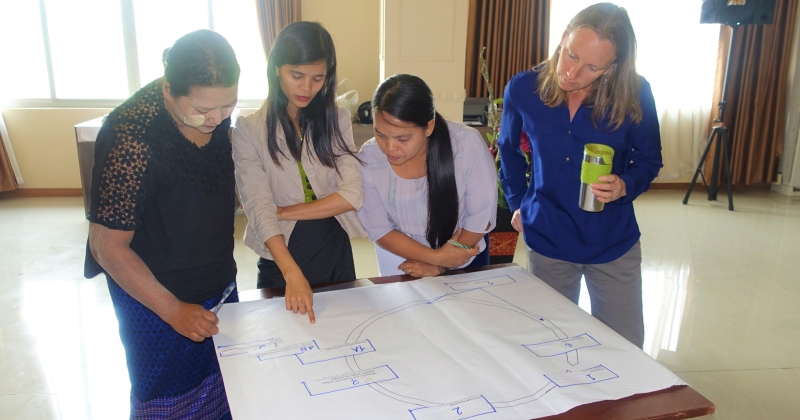According to the high interest of partners, Advocacy and Communication teams of Myanmar Education Consortium (MEC) jointly conducted Basic Advocacy and Communication Training for (9) partners from 25 to 28 October at Green Hill Hotel in Yangon. There are altogether (35) attendees from Karuna Mission Social Solidarity (KMSS) Pathein, ADRA Myanmar, Karen Baptist Church (KBC), Kayan New Generation Youth (KNGY), Pan Pyoe Latt, Nyein (Shalom) Foundation, Hope for Shining Stars (S4SK), Pyinnya Tazaung Association (PTZA) and Meikswe Myanmar (MM).
Through the first 3-day Advocacy Training, participants received the basic concept of Policy Advocacy and its process and procedures. They understood how to identify the key issues, target and influential people to ensure policy, system and attitude change. Moreover, they got different advocacy approaches to apply when they develop the advocacy strategy of their respective organization in the future.
At the end of the advocacy training, participants produced advocacy action plans for Early Childhood Care and Development (ECCD), Complementary Education, Non-Formal Education (NFE) and Inclusive Education (IE).
The Basic Communication training provided how communications work, how to use communications to strengthen the organization profile and community. Participants figured out their existing communication systems in their respective organizations to strengthen and learned case studies writing by group works.



